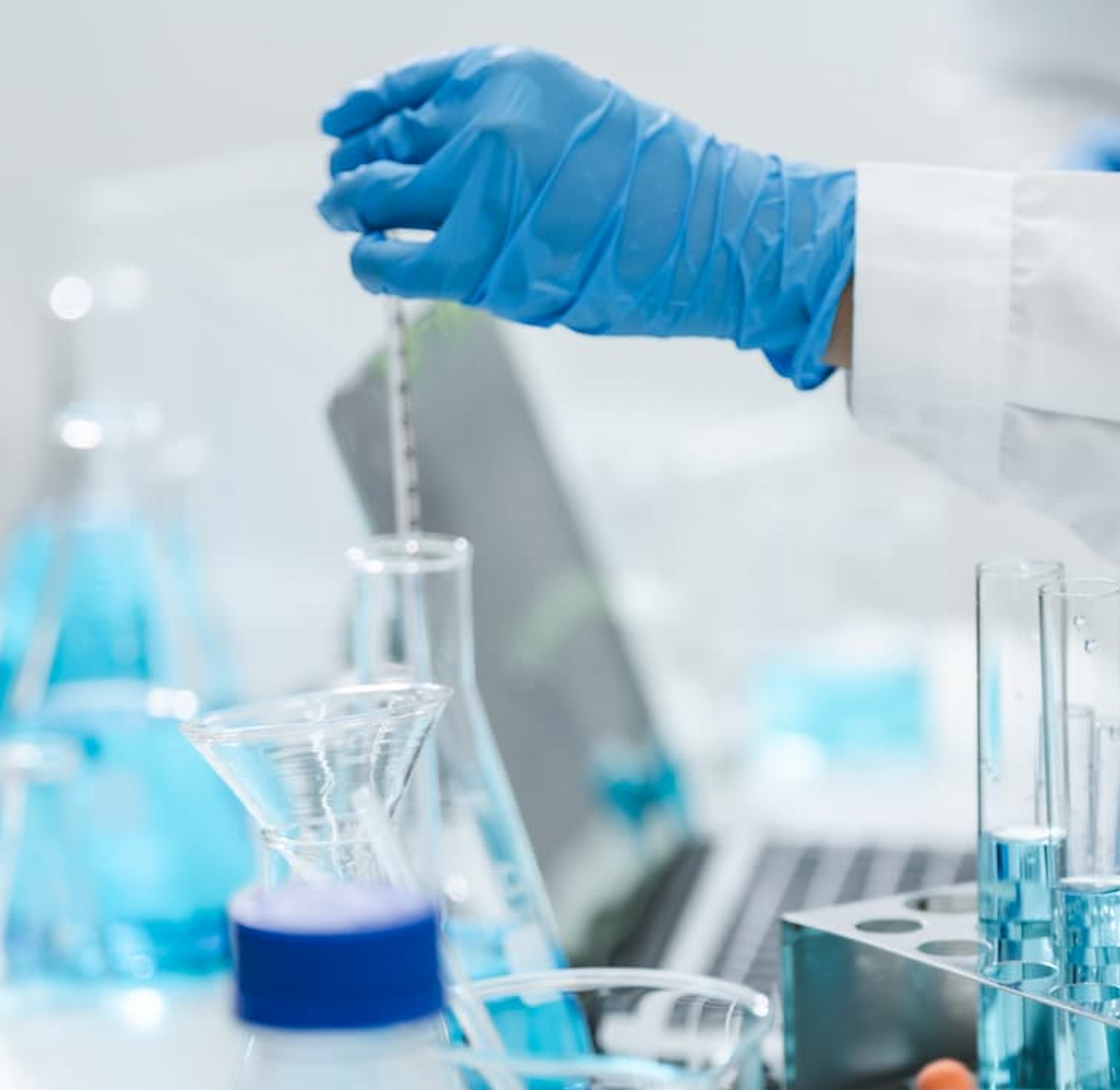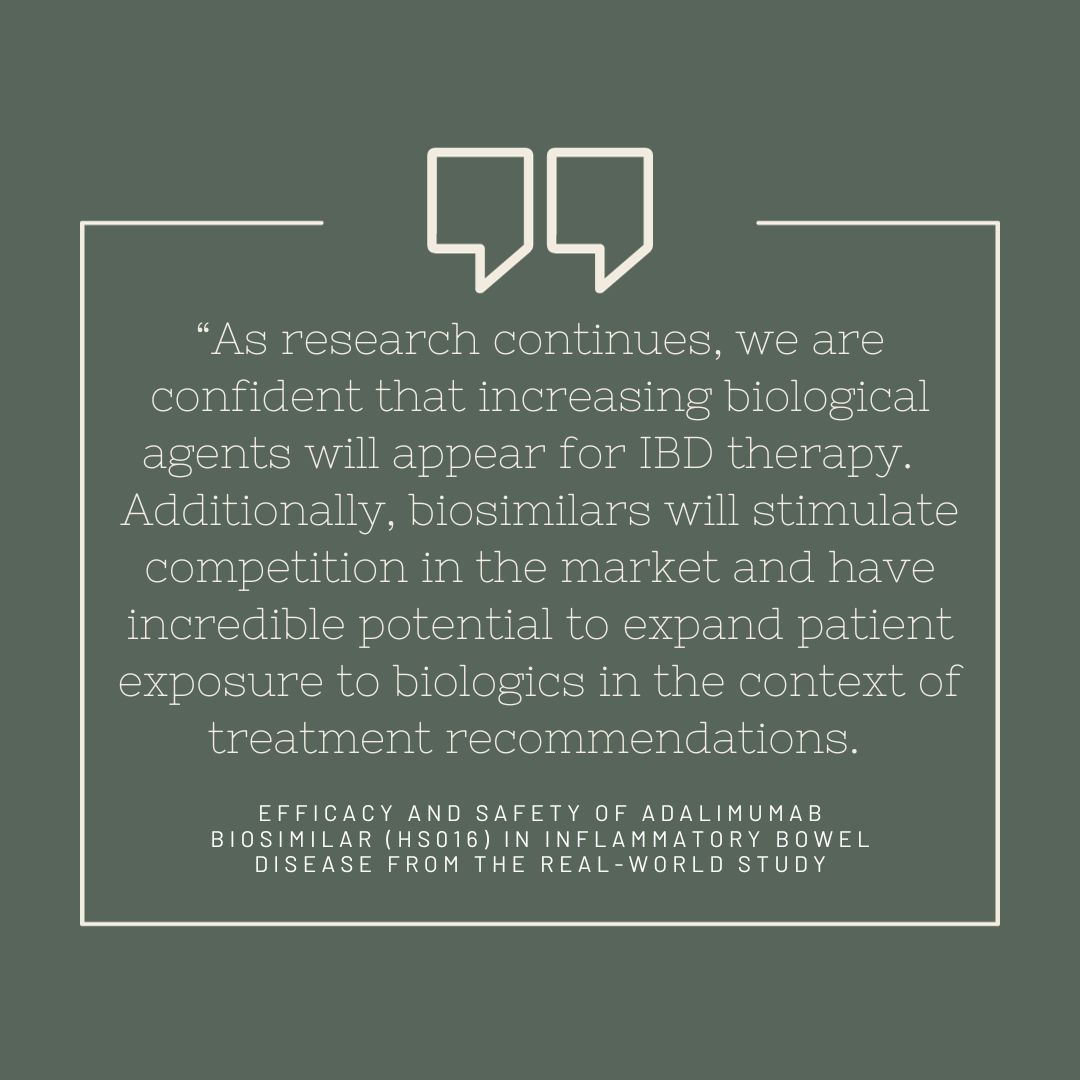News
Article
Adalimumab Biosimilar HS016 Demonstrates Efficacy, Safety in IBD
Author(s):
Most patients with active Crohn’s disease receiving adalimumab biosimilar, HS016, achieved clinical response at weeks 12, 26, and 52.
Credit: Adobe Stock/chokniti

The adalimumab biosimilar, HS016, showed good safety and efficacy among a cohort of Chinese patients with inflammatory bowel disease (IBD), according to a study published in Frontiers in Pharmacology.1
Tumor necrosis factor-α (TNFα) was the first viral factor identified in the development of the inflammatory responding process. Therefore, anti-TNFα biologics, such as adalimumab, have been widely used to treat inflammatory conditions.2 Although the efficacy of adalimumab and its biosimilars has been demonstrated for the treatment of IBD, including ulcerative colitis (UC) and Crohn’s disease (CD), in Europe and the United States, the therapeutic response of the Chinese adalimumab biosimilar, HS016, has not yet been proven.

“As research continues, we are confident that increasing biological agents will appear for IBD therapy,” wrote a group of Chinese investigators. “Additionally, biosimilars will stimulate competition in the market and have incredible potential to expand patient exposure to biologics in the context of treatment recommendations. Appropriate use of therapeutic drug monitoring (TDM) will provide physicians with a more significant basis for selecting and optimizing treatment.”
A cohort of 91 patients, including 75 with CD and 16 with UC, were treated with HS016 160 mg at baseline, 80 mg at week 2, and then 40 mg every other week. Clinicians were able to increase this dose to 40 mg every week in the case of insufficient efficacy. The safety profiles and efficacy were analyzed and TDM was used in nonresponders, which was determined after 3 or 6 months of treatment. In the nonresponse population, serum TNFα concentrations were collected and evaluated according to their disease severity. Data including age, gender, height, weight, disease duration, medication history, surgical history, and disease typing were collected.
Of those patients with active CD (n = 61), most achieved clinical response at weeks 12, 26, and 52 (75.4% [n = 46]; 73.8% [n = 45]; and 50.8% [n = 31], respectively). Additionally, clinical remission was demonstrated in 55.7% (n = 34) at week 12, 65.6% (n = 40) at week 26, and 45.9% (n = 28) at week 52. Maintained remission rates in patients with CD in clinical remission (n = 14) were 100% at week 12, 78.6% at week 26, and 63.6% at week 52. In the active UC cohort, 37.5% (n = 6) and 50% (n = 8) achieved clinical response at weeks 12 and 26, respectively.
Regarding the safety profile of HS016, a total of 5 patients (5.5%) reported adverse events rates during the 52-week period, including 3 cases of a psoriasis-like rash and 2 cases of scattered rashes on the extremities. Additionally, 30.4% (n = 7/23) had poor clinical responses due to inadequate serum drug concentration. Serum antidrug antibodies were elevated in 1 patient (4.3%).
Investigators noted limitations regarding the application of TDM within clinical practice, including when to use TDM and how to interpret the results. Reactive TDM is the standard of care, although proactive TDM is being developed as a new strategy to optimize therapy in patients with IBD. They stated more research is still necessary to define the optimal drug concentration in proactive TDM, particularly during induction therapy.
“The primary outcomes of this study show that HS016 has a significant therapeutic effect on IBD patients, and the most frequent factor for the ineffective HS016 treatment is insufficient serum concentration,” investigators concluded. “Our research proves to physicians that HS016 is a practical and safe treatment option for IBD.”
References
- Wang F, Li X, Shi Y, et al. Efficacy and safety of adalimumab biosimilar (HS016) in inflammatory bowel disease from the real-world study. Front Pharmacol. 2023;14:1259183. Published 2023 Oct 16. doi:10.3389/fphar.2023.1259183
- Sandborn, W. J., Hanauer, S. B., Rutgeerts, P., Fedorak, R. N., Lukas, M., MacIntosh, D. G., et al. (2007). Adalimumab for maintenance treatment of Crohn's disease: results of the CLASSIC II trial. Gut 56 (9), 1232–1239. doi:10.1136/gut.2006.106781




